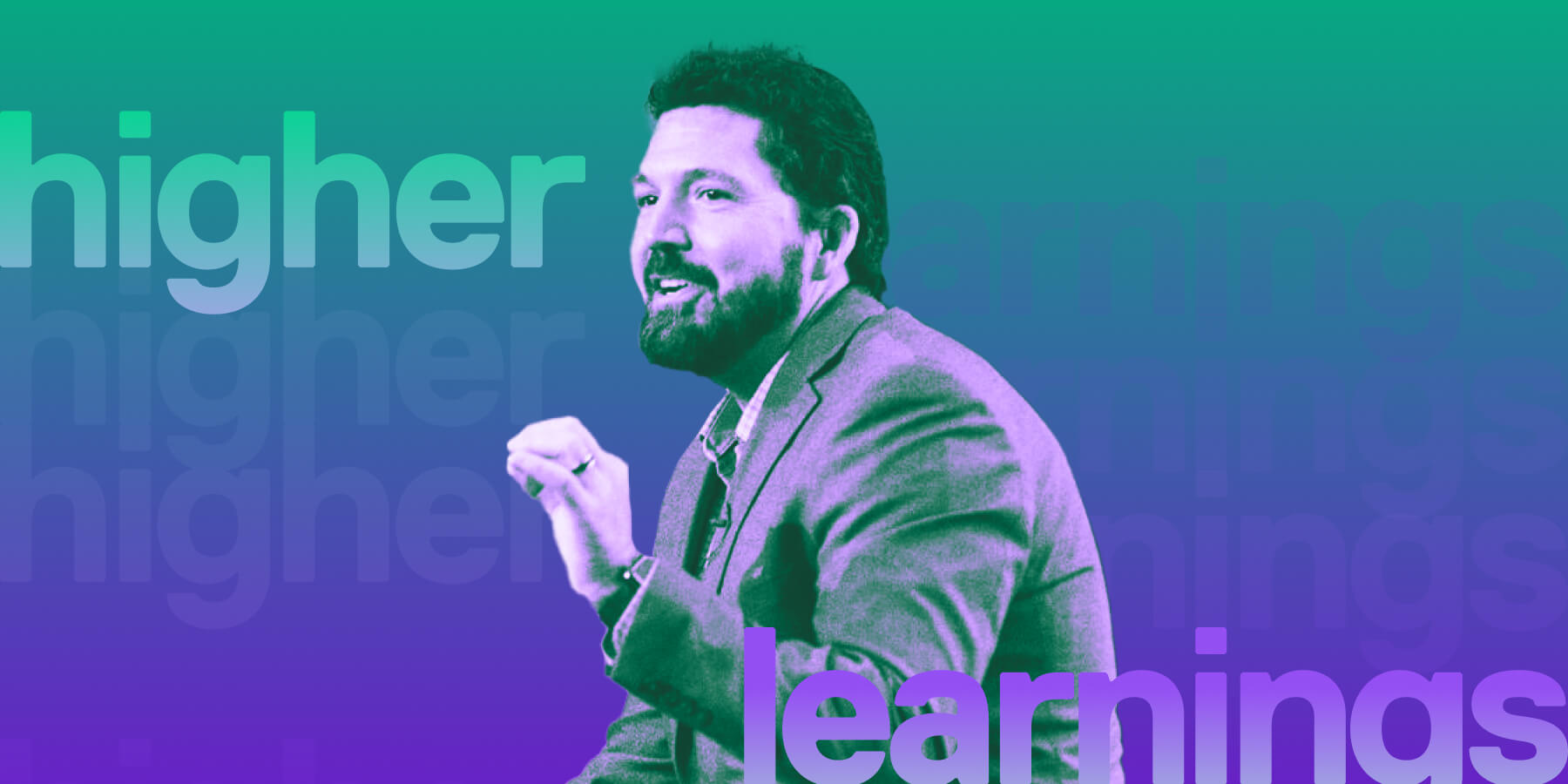“Ungrading.” For Jesse Stommel—professor and co-author of An Urgency of Teachers—the practice itself doesn’t mean abandoning grades and structure altogether. Instead, it means inspecting the true role of grades and challenging ourselves about whether the pedagogical tools we use are setting the conditions for students to thrive.
Central to Stommel’s view is that students are complex individuals deeply committed to learning but who also bring with them unique challenges and lived experiences. As Stommel believes, traditional grading systems often don’t serve fragile communities such as those facing socio economic hardships or those who feel isolated from their peers and educators. Ungrading, as he outlines, is education’s moment to remove the emphasis on grades as the primary motivator for students in order to focus on approaches that are more inclusive, adaptive, challenging, and compassionate.
With so much need to improve retention and graduation rates, Stommel calls upon educators to invite students into a long-overdue conversation on the impact of grades on their sense of motivation and achievement. That starts with offering alternative assessment ideas designed with the least privileged students in mind.
→ Watch now: Jesse Stommel’s alternative assessment ideas
Traditional grades and assessments interfere with meaningful learning
The pursuit of a letter grade often runs counter to meaningful learning. Based on the structures we provide, students will do what it takes to achieve their desired outcome—and if the purpose of assignments or assessments is simply viewed as a way to grade performance, that invariably means taking shortcuts. Significant learning, on the other hand, starts by tapping into deeper motivations and using the classroom and assessments as spaces for dialogue, and exploration, rather than ‘hoops’ for students to jump through. It involves helping students develop the metacognitive skills to become ‘readers’ of their own education.
At a time when more first-generation students and students from historically underrepresented communities are filling our lecture halls, letting rigid assessment policies dictate the student experience can have a disproportionately negative impact. Recent data reveal how basic needs insecurity is directly linked to test performance. Students who are food insecure generally receive lower Math-SAT scores. Those who don’t feel a sense of belonging in class tend to see lower GPA scores. It begs the question: what are we actually assessing? The ability to manage stress on an empty stomach? Whether a student had the advantage of tutoring? “We fetishize grades and make them the center of our system,” Stommel reminds educators. “But we can’t grade students without knowing who they really are.”
Given these concerns, he encourages instructors to reflect on the following:
- Who is assessment for? Ask yourself how you might adapt your policy compared to the way your institution structures the assessment system.
- What’s the difference between grading and feedback? Be sure to make the process of completing an assessment a learning experience in itself, compared to quantifying knowledge.
- Why do we grade? Consider the emotional and physical response associated with letter grades as well as your end goal.
- What would happen if we didn’t grade? Weigh up the structural obstacles that come with a gradeless course against the potential benefits.
Stommel envisions the future of assessment to be less about achievement and more about reflection and intrinsic motivation. Above all, he advocates for a world where educators recognize that specific students need tailored resources in order to excel. “Trusting students means we create a space where, in turn, students trust us as teachers,” Stommel says.
Influenced by educational thinker Paulo Freire, he emphasizes using student self-assessment as the compass with which to evaluate significant learning and achievement. After all, isn’t it by reflecting on our own journeys—what we’ve learned about ourselves and others, our sources of inspiration, our insights, where we struggled and what we would do differently—a better measure of the knowledge we’ve acquired?
Shifting from high-stakes to alternative assessment ideas
The most important takeaway from Stommel: be sure to invite your students into a conversation about grades. Create a safe space for them to share how grades make them feel academically and emotionally. Allow them to question how they apply their knowledge. And be sure to let them reflect on the circumstances under which they perform best. “It isn’t that we throw rubrics out altogether. It’s that we ask ourselves, ‘how do we use rubrics to speak to students better?,’” Stommel says.
He offers alternative assessment examples below that allow for greater agency, and more importantly, promote trust.
- Minimal grading: Use scales with fewer intervals to make grading more clear and transparent.
- Contract grading: Convey expectations about what’s required for each grade and use contracts to ensure goalposts don’t suddenly shift.
- Process letters: Ask students to reflect on how their work has evolved over the term and allow them to guide the grading of their own work.
- Authentic assessment: Let students complete activities for audiences in their communities, boosting intrinsic motivation.
- Self-reflection: Allow students to reflect on their work in your course and how they met their academic goals they set for themselves. Encourage learners to assign themselves a letter grade at the end.
The ideas above are a few of the many ways to build up metacognition among students, to get them to really think about their learning experience. Whether it’s questioning how they’re assessed or giving students different assessment types to demonstrate their knowledge, the end goal is to make learning ‘stick’ in a meaningful and productive manner. This isn’t about removing grades and structure altogether. As Stommel outlines, alternative grading policies are meant to give students greater agency over their academic experience. It’s also about providing what many came to college for in the first place: the chance to learn about themselves and others, to grow intellectually and to develop character and humility in the process.
→ On-demand webinar: Jesse Stommel on ungrading and alternative assessments


